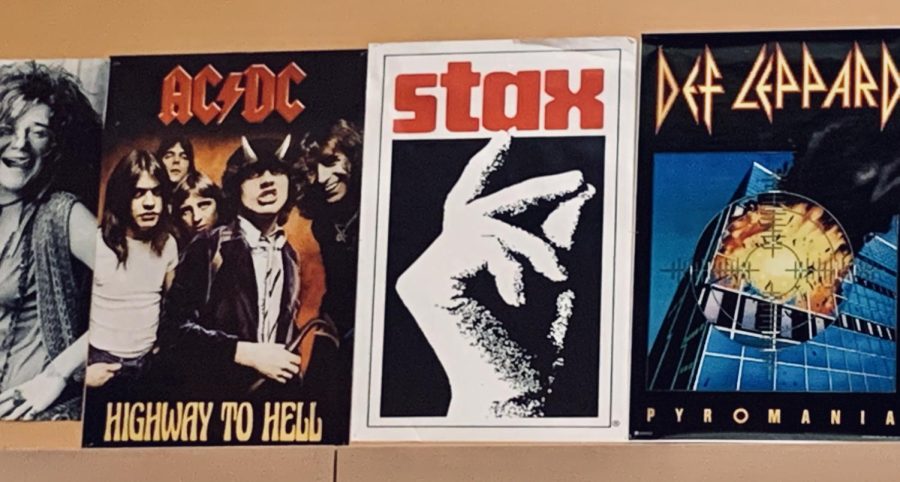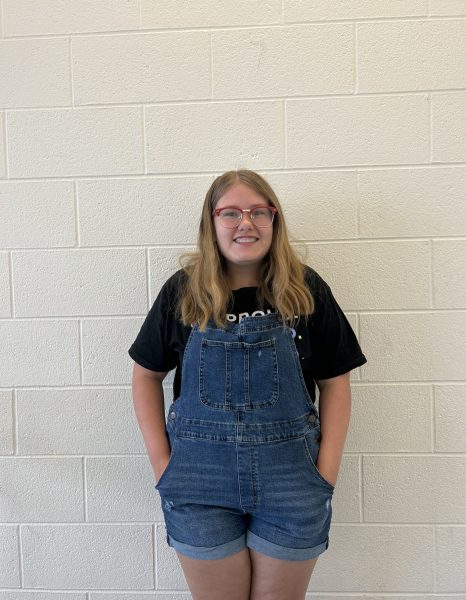Culture, History and Music: The American Popular Music Course
A section of band posters off of Micheal Copen’s poster wall.
September 30, 2022
This year Oakdale welcomes the American Popular Music course, taught and written by Oakdale teacher, Michael Copen. The class ties together culture, history, and music to allow students to fully grasp how the three are intertwined.
American Popular Music’s curriculum is built upon taking an aspect or time period in American history, and analyzing how the events and society of that impact the music of the time, as well as how music of the time impacts society and history.
While it may be a music class, playing an instrument is not the subject of the class, but rather as Copen explains, “It gives you a whole different perspective on culture and how people and how music impacts the culture.”
With its connections to historical occurrences and music the class allows students to gain and study different perspectives. More specifically, it provides students with a new point of view on how the three all interact with one another.
The workload of the course itself also differs from other classes. The biggest difference being the distinct lack of long, intensive assignments. Instead of essays and papers or massive projects, students find themselves completing assignments that require listening then responding. The class is also based on student participation.
Oakdale Senior Rachel Etter elaborates on the workload of the class, “Assignments are usually in the form of answering questions in Peardeck and writing about what we learned by completing worksheets.”
Although American Popular Music is a more laid back class compared to the other classes offered at Oakdale High School, the class itself is still rather informative. Not only does it connect historical events and music, but it provides plenty of information on musical history. Copen explains, “You get to learn the history of music you may have missed or have always had an interest in and would like to learn more about.”
Through providing a thorough curriculum that helps cover how musicians have reacted to historical events, it provides students with both lessons that may fill in gaps with cultural reactions and thoughts on historical events.The class also allows them to learn more about musical topics they have interest in.
In the course, students are not only broadening their knowledge of music, but expanding their collection of historical information. Once more, students can now fully grasp just how interconnected american life is with music.






























